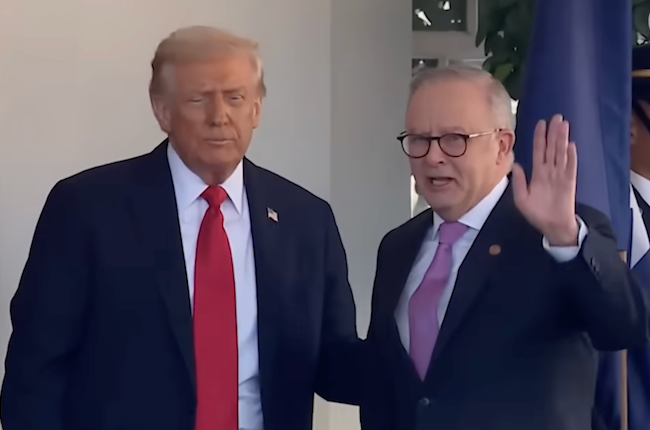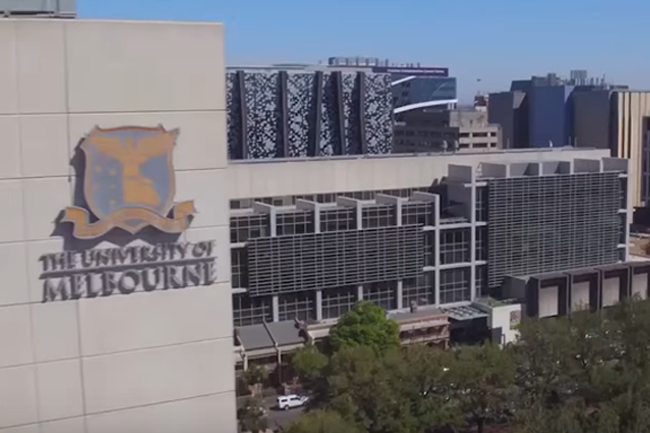The Trump presidency is the politics of anti-politics, writes Kim Sawyer. It is the politics of disrespect.
WHEN William Golding wrote Lord of the Flies, he could not have anticipated his metaphor to become reality.
Or perhaps he did. Perhaps he understood better than most the conflict between civility and incivility, that within all of us there is a propensity not to self-regulate. It is the reason why we have regulations, and why we need independent prosecutors and an independent judiciary. Regulation is necessary because many of us cannot self-regulate.
Regulation underwrites politics. The rise of Trump is the rise of the anti-politician. Many who voted for Trump did so because he is not a politician. He does not observe the proprieties others observe. He says what others are too polite to say. He does not self-regulate as others self-regulate. Trump voters would probably not want him to be their neighbour or banker. But they want him as their President because he is an anti-politician.
Disrespect of politicians is not new. Approval of Congress has rarely exceeded 40% in the last 50 years, with the most recent poll showing less than 16% approval and 72% disapproval by American voters. It is not just an American phenomenon. It is representative of democracy everywhere.
There are several reasons why. First, many voters think politicians no longer represent them. Politicians are like portfolio managers, minimising risk and maximising return; but it is their risks and their returns. Politicians are often so risk averse as to appear robotic, real only when they succumb to scandal. For many voters, politicians are enemies rather than representatives of the people. An anti-politician is the antidote.
There is another reason. Politicians enact regulations to regulate those who cannot regulate themselves. Politicians are arbiters of regulation and self-regulation. They constrain us when we need to be constrained. The parry and thrust of regulation determines the political cycle. The 1980s were a decade of deregulation — the last decade a decade of regulation. Many think politicians have constrained us too much, that we are over-regulated. Trump is the response.
The Trump presidency is the politics of anti-politics. It is the politics of disrespect. He not only disrespects Obama, he disrespects any politician who represents the rule of law. His most strident comments are for those who have sacrificed most, like John McCain.
Senator @SenJohnMcCain's comments on the Trump-Putin Summit.
— Nathan Caranci (@NathanCaranci) July 16, 2018
"Today's press conference in Helsinki was one of the most disgraceful performances by an American president in memory."
It's time for McCain's fellow Republicans to co-sign his statement. pic.twitter.com/PvQciehLpf
He is the most anti-Lincoln of presidents. Lincoln fought a civil war; Trump is fighting an uncivil war. Trump is the flagbearer of the party of Lincoln, but Trump would have opposed Lincoln.
Anti-politics is most evident in his emphasis on deregulation. The deregulatory clock defines the Trump presidency. With other presidencies, legislation matters. With Trump, the repeal of legislation matters. It is not just the repeal of Obamacare. It is the repeal of many constraints on economic and social behaviour. The deregulation model is simple: not to make regulations more efficient, just take a sledgehammer to them.
Three revocations are illustrative. The repeal of a requirement for oil and gas companies to report methane emissions; the repeal of an executive order protecting ocean, coastal and Great Lakes waters; and the revocation of flood standards for infrastructure projects. There have been more than seventy major environmental regulation rollbacks, and there will be more. It is the same for financial deregulation. The rollbacks of the Sarbanes-Oxley and Dodd-Frank Acts are proceeding. Future risks are priced to zero; the lessons from previous crises forgotten. It is deregulation without foresight.
The irony of the Trump presidency is that he is pushing us towards self-regulation when he has never regulated himself. He has failed to honour commitments to employees, to contractors, to students, to tenants, to other taxpayers and to the truth. He has failed to regulate himself. It is failure against which we should regulate.
In the last month in a Chiang Rai cave, we have seen the power of self-regulation. A coach and twelve boys taught us a lesson that Trump never could. They taught us how to survive, by conserving food, water, air and energy. They survived through meditation, self-regulation and unity. It was a lesson for us all. It is the antithesis of the boys in Lord of the Flies. It is the antithesis of Trump.
In the final chapter of Lord of the Flies, civility returns. So it will be post-Trump. His legacy will be the necessity for better regulation and self-regulation. And more civility.
Dr Kim Sawyer is a senior fellow in the School of Historical and Philosophical Studies at the University of Melbourne. His principal research interests are in whistleblowing, regulation, finance and philosophy.

This work is licensed under a Creative Commons Attribution-NonCommercial-NoDerivs 3.0 Australia License
Monthly Donation
Single Donation
So as the 239297483912683492712637934023746th reminder: Donald Trump is a liar and a conman.
— Yonathan Seleshi (@yonathanseleshi) July 20, 2018
Thank you Michael Cohen for being an almost equal level dirt bag who recorded his clients to try to retain leverage over them. #TrumpTapes #StormyDaniels #ImpeachTrump pic.twitter.com/cVQU2tqHxE
Be civil! Subscribe to IA.











